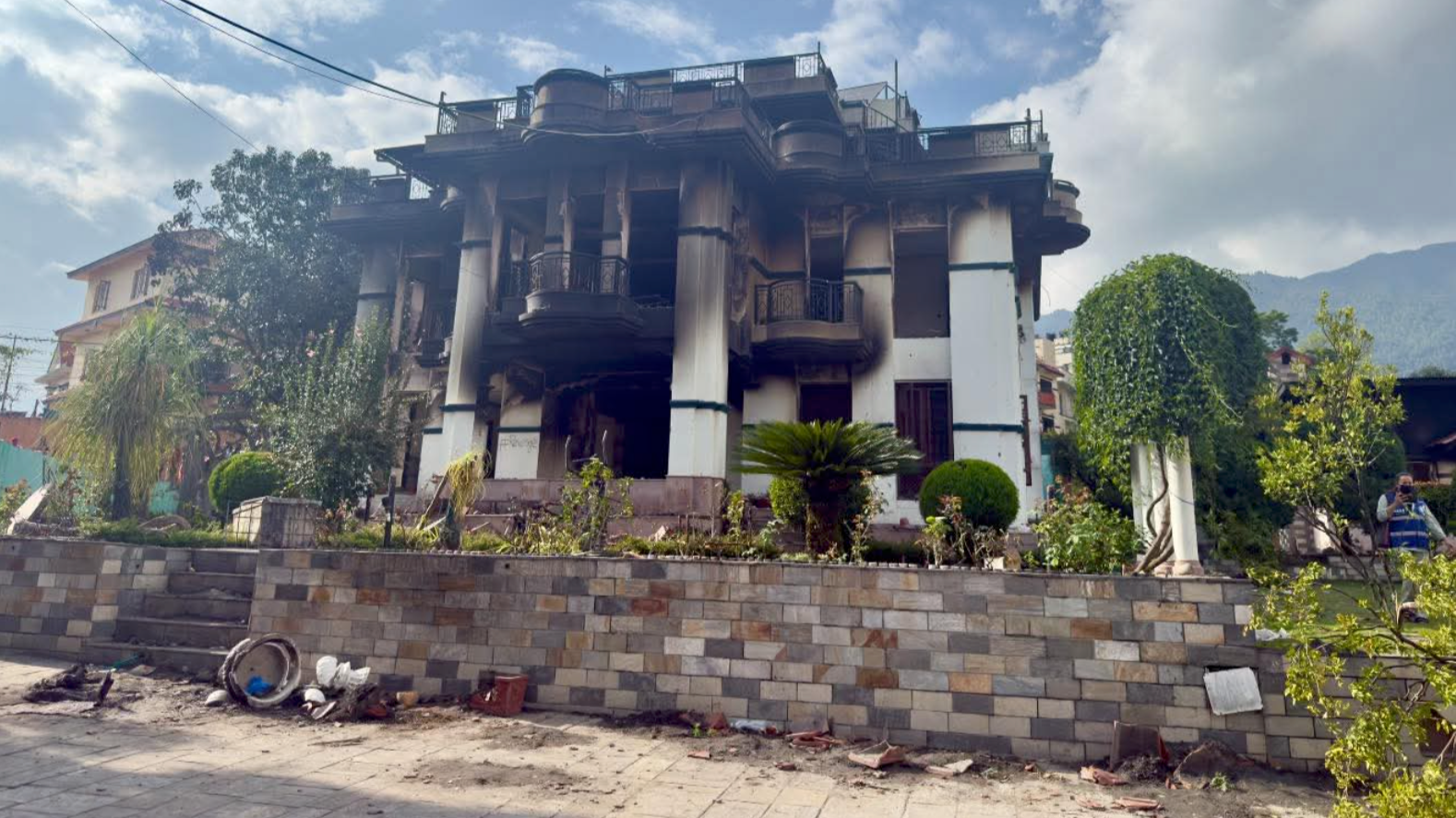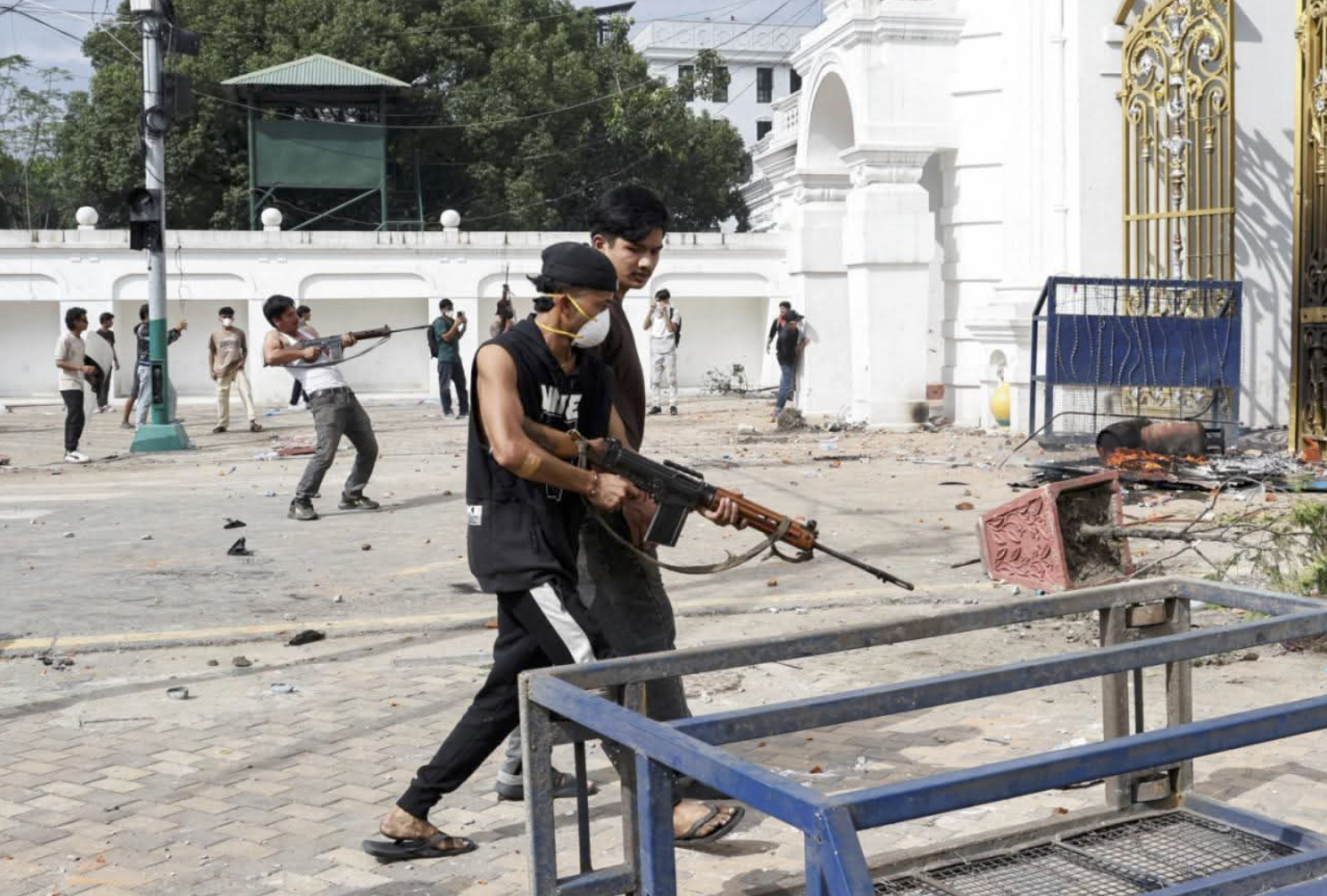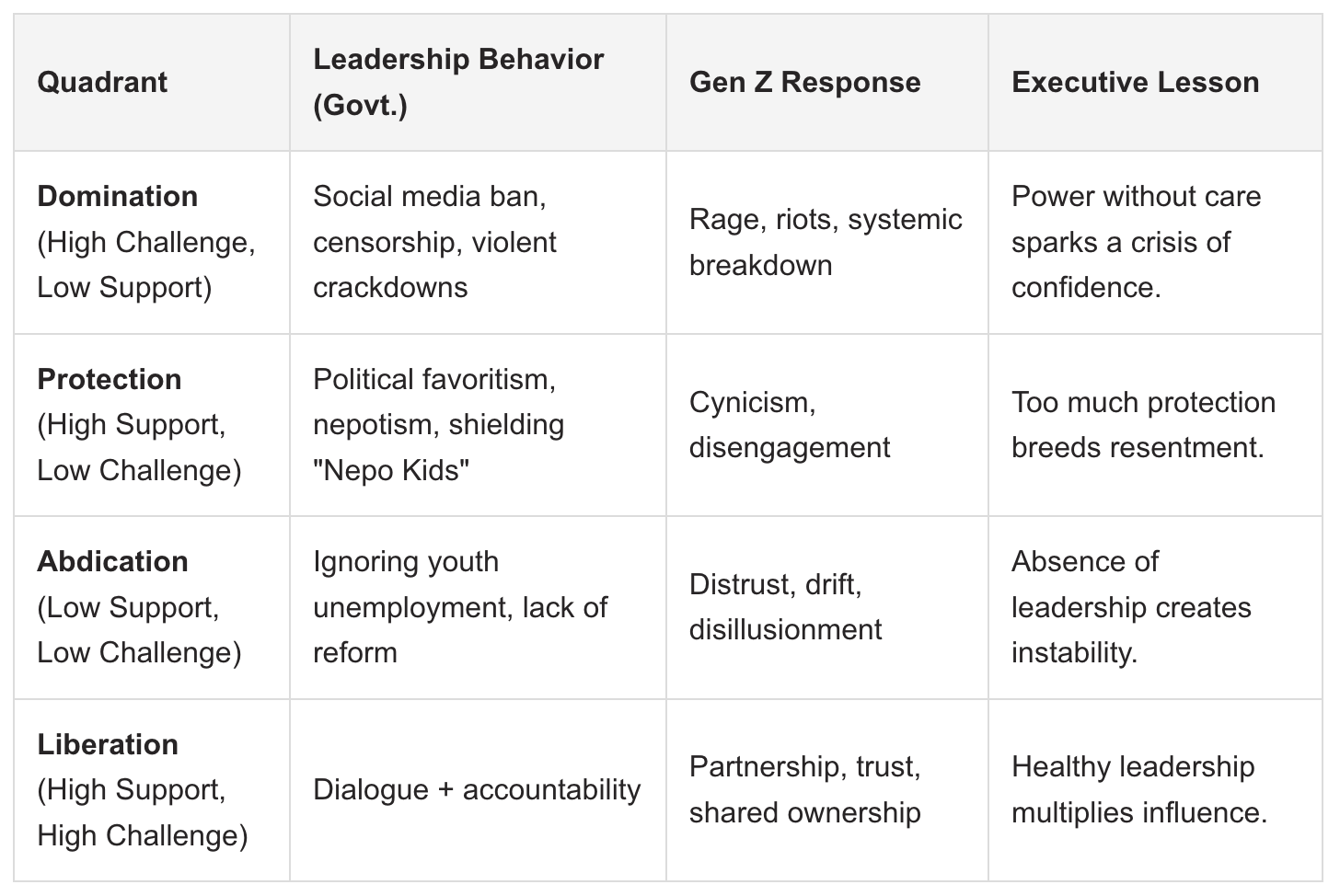When Power Backfires: Nepal’s Gen Z Crisis of Confidence
📸 Babita Tamang
A Real-Time Leadership Case Study
I have spent the past several days in Nepal as a crisis has rapidly emerged. What began as a conversation about potential partnerships has unfolded against the backdrop of a nation in turmoil. Walking the urban and rural streets of Nepal, meeting with local leaders, and watching the protests spill into daily life has been a sobering reminder: leadership failures are never abstract. They ripple into economies, cultures, and human lives with startling speed.
For executives and senior leaders, what is happening here is not just a local crisis—it is a real-time case study in how misuse of power and misunderstanding of leadership can trigger a profound crisis of confidence.
The Oli government’s decision to abruptly ban 26 social media platforms was more than a policy misstep—it was a profound leadership failure. Instead of curbing dissent, the ban ignited a Gen Z crisis of confidence that left government buildings burned, institutions shaken, and ultimately forced the resignation of Nepal’s Prime Minister.
For executives and senior leaders worldwide, this is not just a geopolitical headline—it’s a cautionary tale about how quickly credibility can unravel when leadership defaults to domination instead of stewardship.
Four Leadership Blind Spots Executives Should Learn From
1. Misuse of Power Creates Crisis, Not Confidence
Nepalese leaders assumed that suppressing online platforms would silence criticism. Instead, it radicalized a generation.
Lesson for executives: When leaders grasp for control, they accelerate a crisis of confidence. Authority must be exercised with transparency and alignment, not fear and force.
2. Underestimating Emerging Voices
Gen Z wasn’t just scrolling—they were watching. They saw corruption, nepotism, and arrogance, and decided silence was complicity.
Lesson for executives: The rising generation in your company or nonprofit sees through inauthenticity quickly. If they don’t feel heard, they won’t just disengage—they’ll take action, which could cost your company reputation and profit.
3. Escalation Instead of Engagement
Instead of dialogue, Nepal’s government escalated: rubber bullets, tear gas, live rounds. The result? Global condemnation, mass unrest, and collapse.
Lesson for executives: In moments of crisis, escalation erodes trust. Engagement restores it. Leaders who listen first retain influence even when tensions are high.
4. Failure to Lead with Both Support and Challenge
GiANT’s Support–Challenge Matrix (see supplement below) offers a clear lens here: Nepalese leaders defaulted to domination (high challenge, zero support). The outcome was inevitable—alienation and a national crisis of confidence.
Lesson for executives: Sustainable influence comes when leaders balance clarity with care. High challenge must be matched with high support to build resilient cultures.
📸 Babita Tamang
The Larger Executive Question
The Gen Z protests in Nepal are not an isolated outburst. They are a signal—a generational declaration that leadership as domination will no longer be tolerated.
Whether in government, business, or nonprofits, the next wave of leaders will demand authenticity, transparency, and shared power.
Executives who fail to adapt risk not just losing market share or staff loyalty—they risk sparking their own crisis of confidence and undermining their influence.
Executive Takeaways for Leadership Clarity
Audit Your Use of Power: Where are you exercising control instead of cultivating trust?
Listen to Emerging Voices: Build feedback loops with younger staff before they disengage or push back.
Practice Support and Challenge: Domination destroys culture; liberation multiplies it.
Lead in Public, Learn in Private: Don’t wait until your organization is burning to acknowledge blind spots.
Nepal’s Gen Z didn’t create a crisis of confidence over apps—they created one over leadership malpractice.
For executives, the lesson is sobering: misuse of power may work for a moment, but it will never endure. Health, not hurry; liberation, not domination—these are the leadership currencies that last.
SUPPLEMENT:
Support–Challenge Matrix:Lessons from Nepal’s Leadership Crisis
The Support–Challenge Matrix provides a lens to analyze how leadership behavior in Nepal’s government during the Gen Z protests led to systemic breakdown. Executives can learn how misuse of power creates crisis of confidence, while healthy leadership multiplies trust and resilience.
Executive Application: Ask where you are slipping into domination when you should be leading with liberation. Audit whether younger staff feel heard—or silenced. Match every challenge with visible support to build a resilient culture.



